INDIA’S High Commissioner to the UK has expressed optimism that British and Indian officials will be “able to get something working” and find a “right fit” towards a mutually beneficial free trade agreement.
Vikram Doraiswami said he was positive as both countries seem keen to make necessary adjustments, recognising the complexities of the different structures of the two similar-sized economies.
His comments came ahead of the 12th round of the India-UK free trade agreement (FTA) negotiations that began in New Delhi last week.
On the wider bilateral partnership, he expressed similar optimism around an “obvious synergy” across different sectors.
“I’m positive about it (FTA)… My intention is that to the extent we can, we would like a mutually beneficial forward-looking FTA to be concluded,” said the high commissioner. “I believe both sides are keen on making the necessary adjustments. Even though we’re both similar-sized economies, we are dissimilar in the structures of our economies and the complexities of our economies. So, getting the right fit together is very important,” he said. The senior diplomat is closely involved with the FTA negotiations, which began in January last year. He noted it is important the UK recognises some of the complexities of the structure of the Indian economy.
“It can’t be the same as a free trade agreement with a peer-developed country. On the other hand, we too have to take into account the fact that the UK hasn’t actually negotiated many free trade agreements in recent years when it was part of the European Union. So, there are those things that have to be adjusted. But, overall, the trend line seems very positive,” he said.
The 11th round of negotiations concluded on July 18, with a joint outcome statement saying it covered detailed draft treaty text discussions across nine policy areas. According to official UK government statistics, the bilateral trade partnership was worth around £36 billion in 2022 and an FTA is set to significantly enhance that relationship. Commerce secretary Sunil Barthwal said the 11th round of talks in London was “very intense” and many issues were closed.
Out of the total 26 chapters in the proposed FTA, 19 have been closed. Investment is being negotiated as a separate agreement (bilateral investment treaty) between India and the UK. “Now, there are only a few issues left. The UK team is coming to India during the Trade and Investment Working Group (TIWG) meeting (in Jaipur) and we are hoping that we would be closing those remaining issues.
“So, our target is that we close the issues with the UK when the UK team visits us in India and we are very hopeful that the issues will be sorted out,” Barthwal told reporters in New Delhi last week.
“I think our government has been very clear that we want the best possible partnership with the UK and, I believe, from what I hear from the UK leadership on both sides of the political aisle as well as from the senior leadership of the government here, that they too want a forward-looking partnership with us,” said Doraiswami.
Noting that India-UK history is a complex one, he stressed the importance of the bilateral partnership after 76 years of Independence from colonial rule to be informed by what happened in the past but not allow “ourselves to become prisoners of it”.
“It’s important that we build a relationship that touches upon our respective strengths. London is still one of the world’s great capitals of finance, for instance. India is the future direction of global growth. There is an obvious synergy between the need for high-quality, well-priced finance for our infrastructure rollout, for our green transitions. And, there is obviously a need for quality finance to find the best possible rewards in terms of places to go to invest. Both of these obviously speak for themselves,” he said.
On the business aspect of the relationship, the envoy pointed to how Indian businesses have built a huge presence in the UK market and stressed that “it is really now time that we got more British businesses into India as well”.



















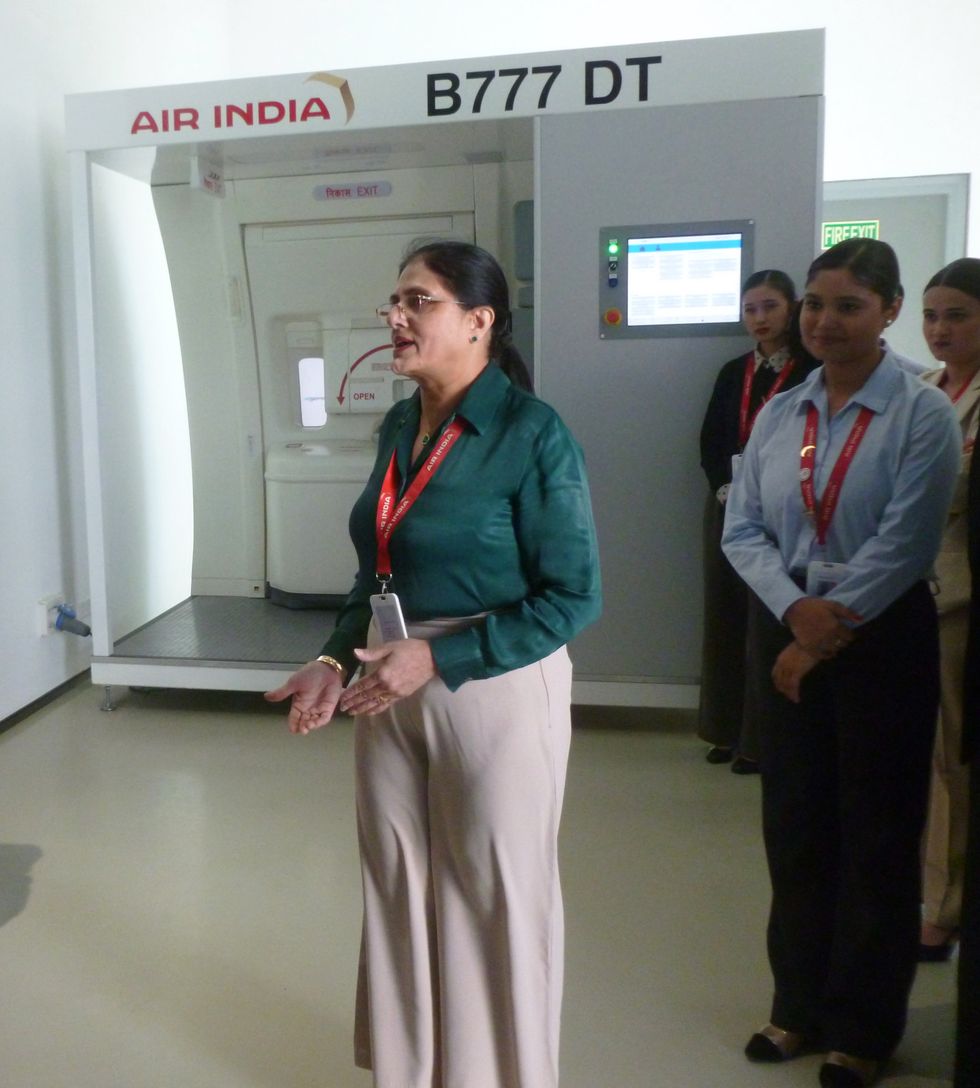 A briefing session on opening cabin doors in the event of an emergency
A briefing session on opening cabin doors in the event of an emergency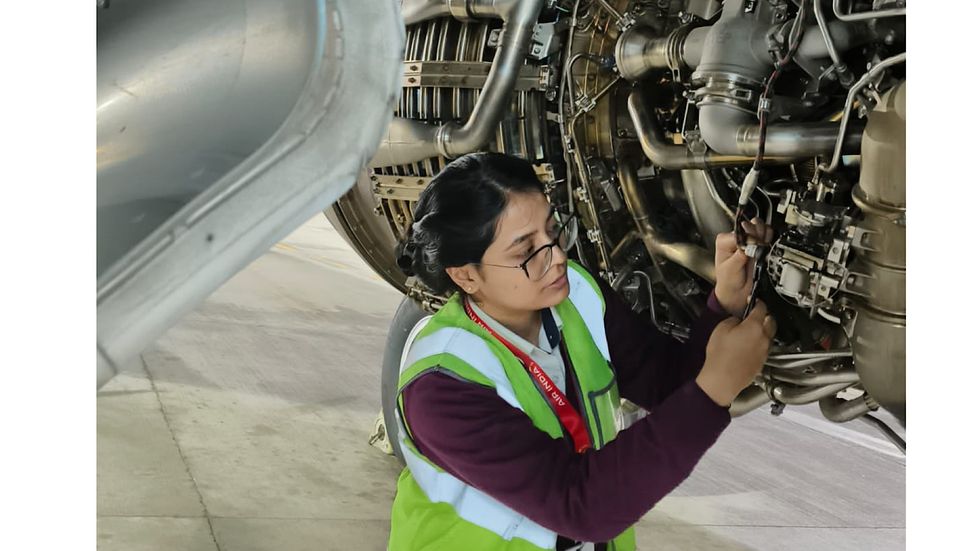 Shradha Dabral checks an aircraft engine
Shradha Dabral checks an aircraft engine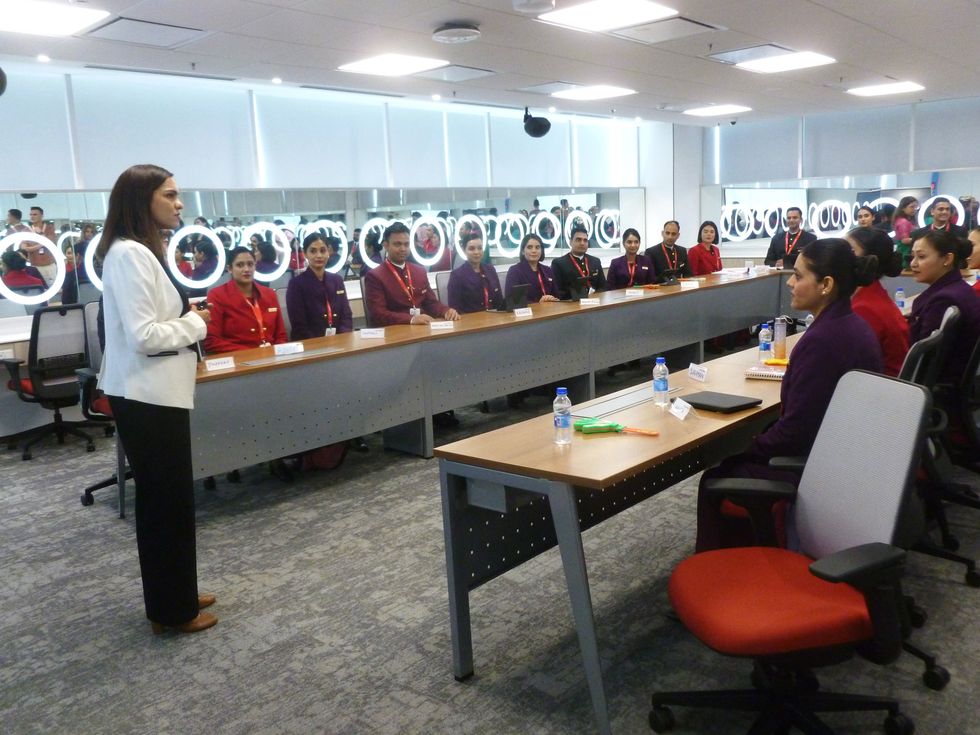 A session on cosmetics and grooming
A session on cosmetics and grooming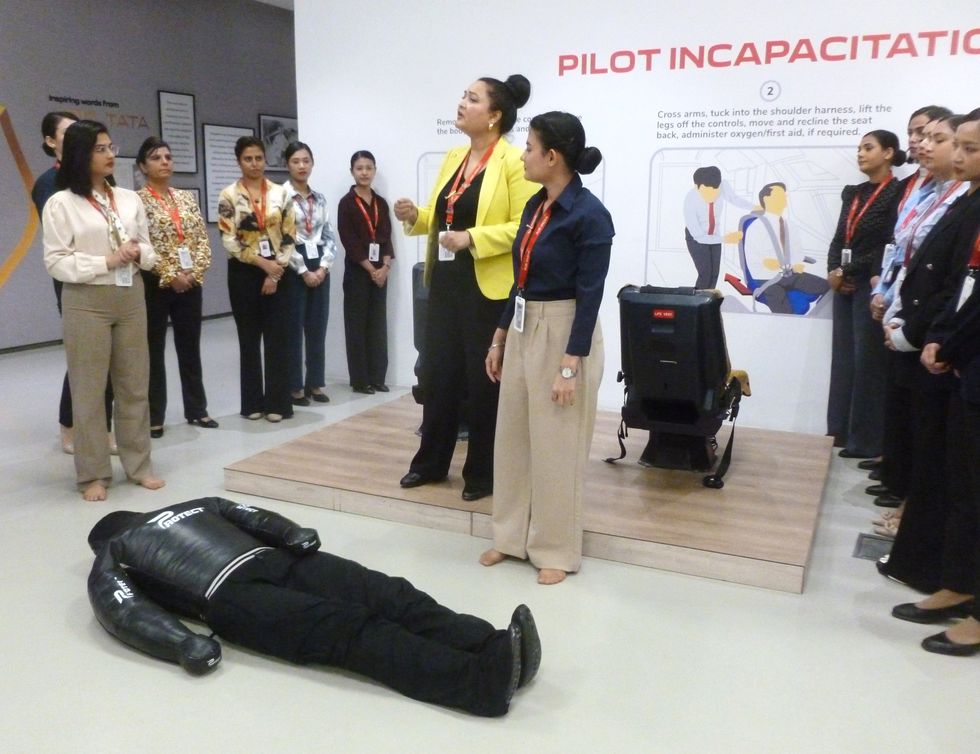 Air India employees are trained in handle pilot incapacitation emergencies
Air India employees are trained in handle pilot incapacitation emergencies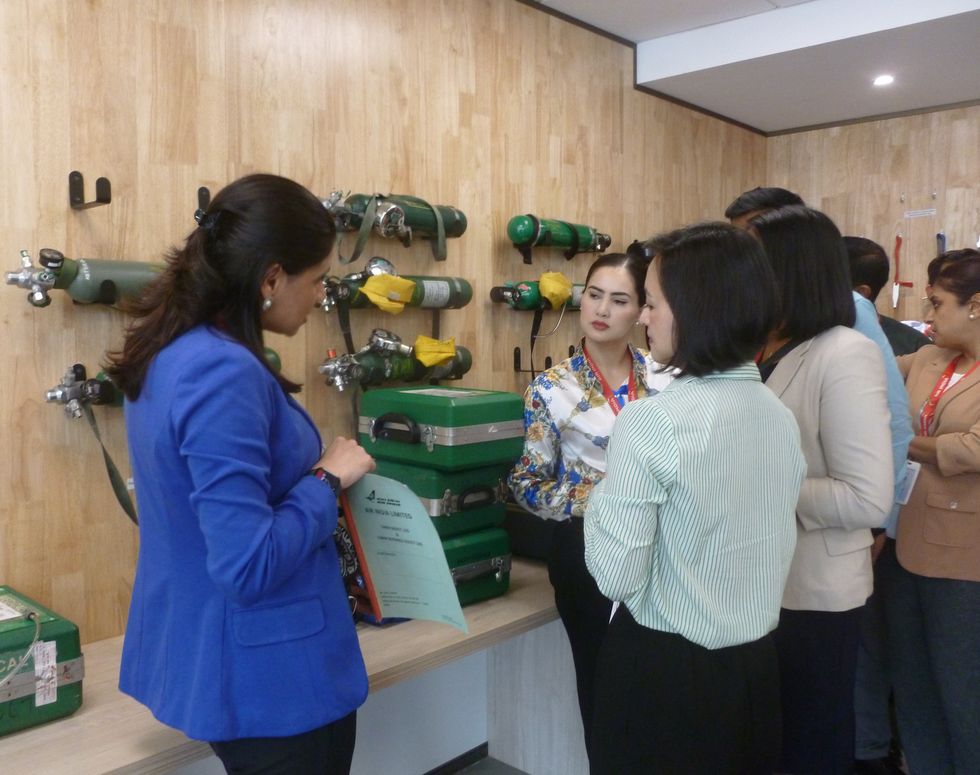 Women are taught how to bring fires under control
Women are taught how to bring fires under control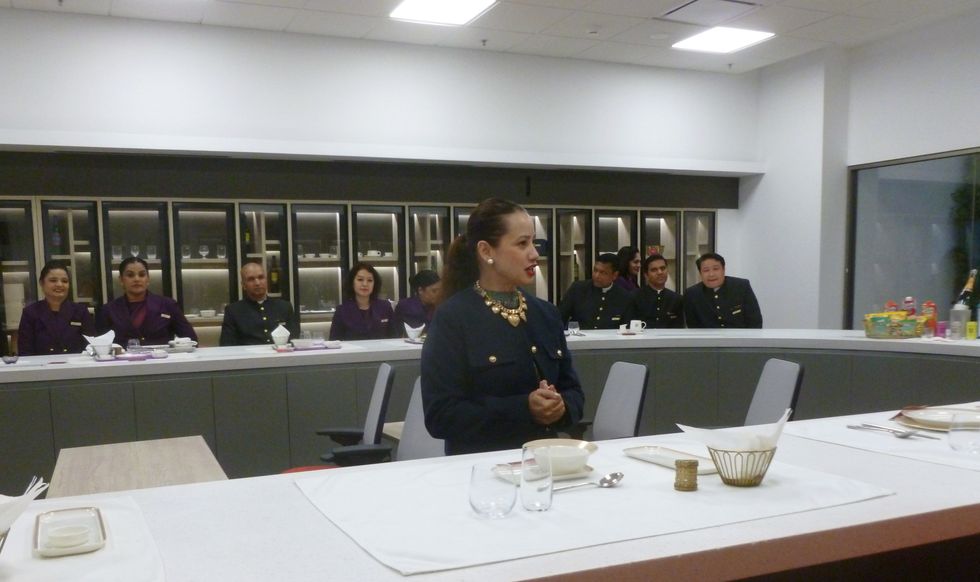 Crew members attend a session on fine dining etiquette
Crew members attend a session on fine dining etiquette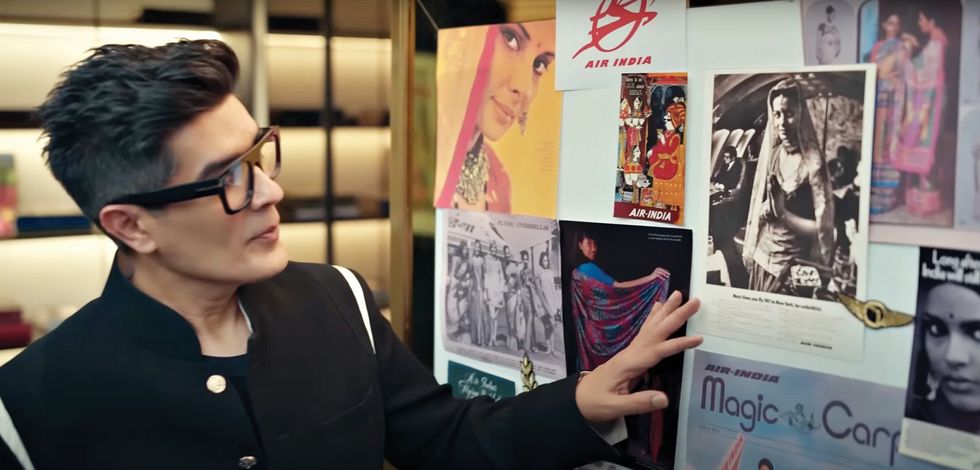 Designer Manish Malhotra
Designer Manish Malhotra